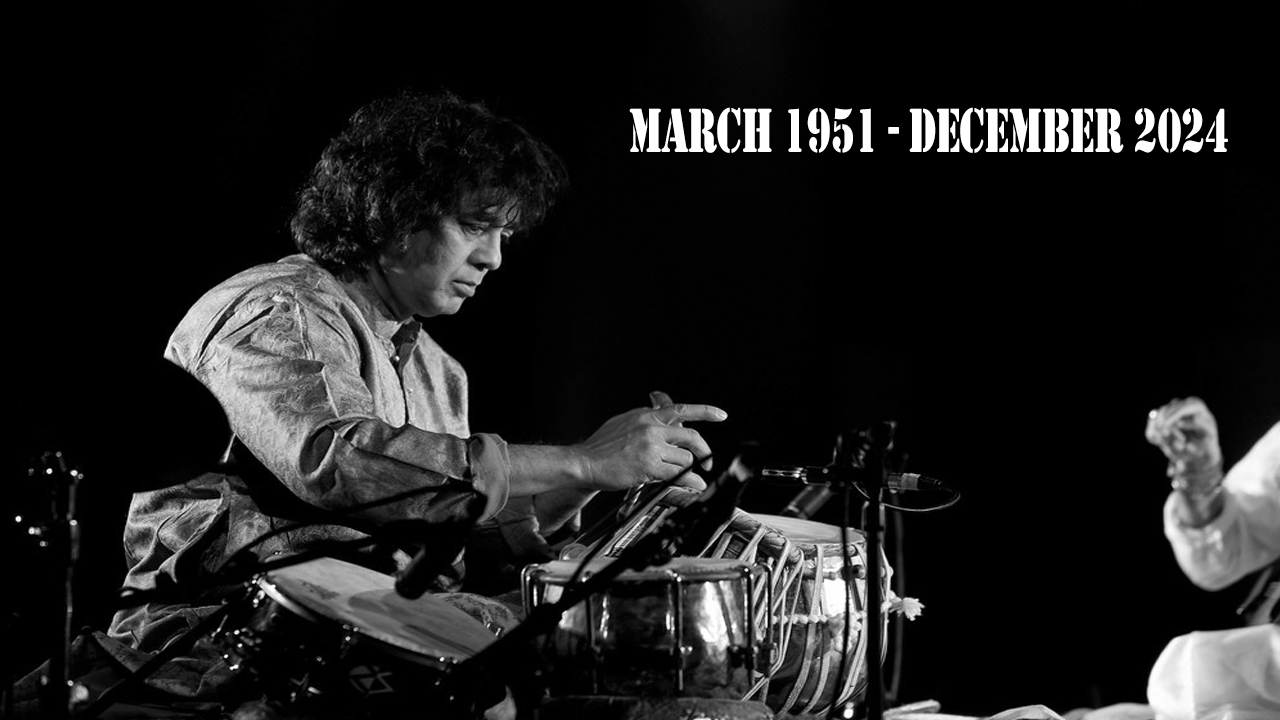Ustad Zakir Hussain dies at 73, leaving behind a legacy that transcends boundaries. Known for his unparalleled mastery of rhythm and his profound contributions to Indian classical music, Zakir Hussain was more than a musician—he was a global ambassador of culture and creativity. Over a remarkable career spanning decades, he earned numerous accolades, including the Padma Vibhushan, India’s second-highest civilian award, and four Grammy Awards, cementing his status as one of the most celebrated percussionists in history. His passing marks the end of an era, as the music world reflects on the immeasurable impact of his life and artistry.
Early Life and the Foundations of Greatness
Born on March 9, 1951, in Mumbai, Zakir Hussain inherited his musical prowess from his father, the legendary tabla maestro Ustad Alla Rakha. Growing up in a household steeped in musical tradition, young Zakir was introduced to the tabla at the tender age of three. Under his father’s disciplined tutelage, he mastered traditional Indian rhythms while also developing an intuitive understanding of the tabla’s expressive potential.
By the age of seven, Zakir was already captivating audiences with his prodigious talent, performing at public events and earning recognition as a child prodigy. These early years of rigorous training and performance not only honed his technical skills but also instilled in him a sense of innovation that would define his career. His journey from a young tabla prodigy to an internationally renowned maestro was marked by an unwavering commitment to excellence and a passion for pushing creative boundaries.
A Global Pioneer in Indian Classical Music
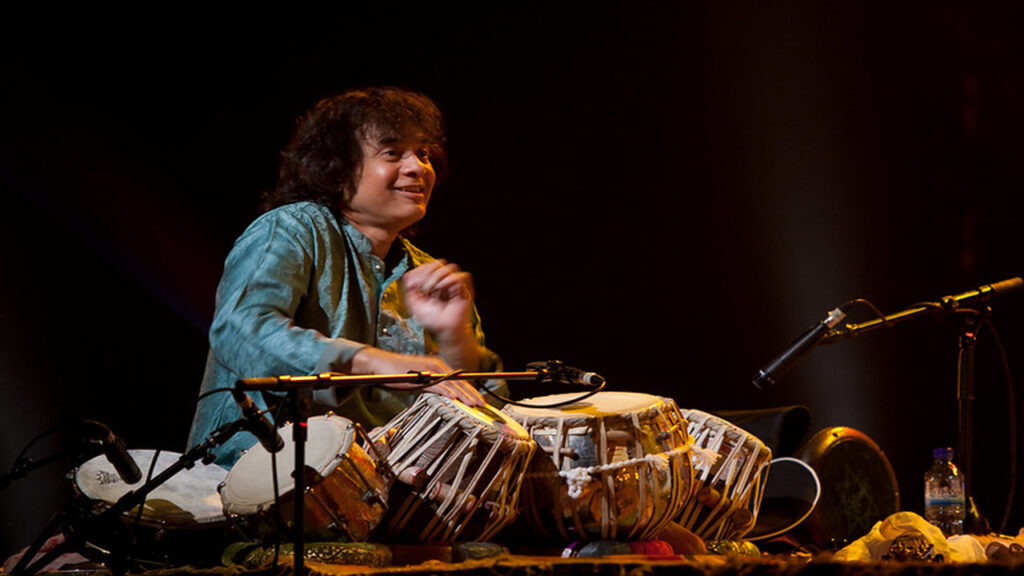
Contributions to Indian Classical Music
Ustad Zakir Hussain’s contributions to Indian classical music were transformative. He collaborated with some of the greatest exponents of Hindustani and Carnatic traditions, including Pandit Ravi Shankar, Ustad Vilayat Khan, and L. Subramaniam. His ability to seamlessly adapt his tabla accompaniment to diverse musical styles highlighted his deep understanding of rhythm, melody, and tradition.
As an accompanist, Zakir Hussain elevated the role of the tabla, making it an equal partner in classical performances. His virtuosic solo recitals, marked by intricate rhythmic patterns and improvisational brilliance, further solidified his reputation as a pioneer in the world of Indian percussion.
Bridging Cultures Through Music
Zakir Hussain’s vision extended beyond the boundaries of Indian classical music. He introduced the tabla to global audiences, performing at prestigious venues such as Carnegie Hall, the Royal Albert Hall, and the Kennedy Center. His participation in international music festivals like the Montreux Jazz Festival and WOMAD further popularized Indian rhythms on the world stage.
Through collaborations with renowned artists like George Harrison, Herbie Hancock, and Yo-Yo Ma, Zakir Hussain transcended cultural and musical barriers. His work not only brought Indian classical music to a global audience but also fostered cross-cultural appreciation and understanding.
Fusion Music and Groundbreaking Collaborations
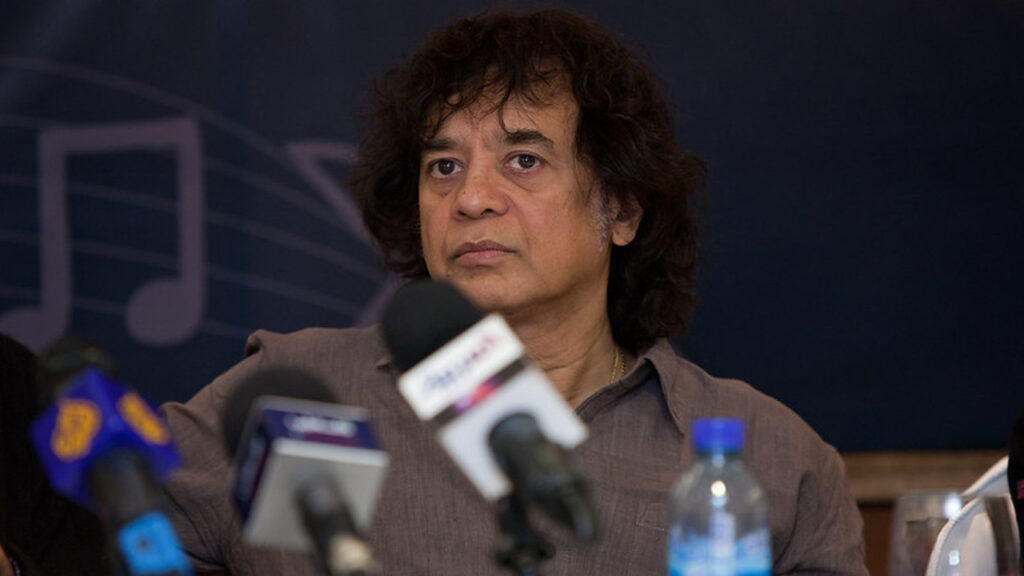
Shakti and Remember Shakti
In the 1970s, Zakir Hussain co-founded Shakti, a pioneering fusion band that blended Indian classical music with jazz. Alongside guitarist John McLaughlin, violinist L. Shankar, and other esteemed musicians, Zakir Hussain created a genre-defying sound that captivated audiences worldwide. The band’s innovative approach laid the foundation for its revival as Remember Shakti, which continued to push the boundaries of musical experimentation.
Planet Drum and Grammy Success
Zakir Hussain’s collaboration with Grateful Dead drummer Mickey Hart led to the formation of Planet Drum, a project that explored the intersections of global percussion traditions. Their album Planet Drum won a Grammy Award in 1992, marking a milestone for world music. This collaboration exemplified Zakir’s ability to integrate diverse musical traditions into a cohesive and universally appealing sound.
Rhythmic Innovation
Throughout his career, Zakir Hussain continually expanded the possibilities of rhythm. By incorporating elements of Western classical, electronic, and folk music, he created innovative compositions that inspired a new generation of musicians. His unique ability to blend tradition with innovation set him apart as a true visionary.
Recognitions and Honors
National Awards
Zakir Hussain’s exceptional contributions to music were recognized with numerous awards from the Indian government. He received the Padma Shri in 1988, the Padma Bhushan in 2002, and the Padma Vibhushan in 2020. These honors reflect his enduring impact on Indian culture and his role as a national treasure.
International Accolades
Zakir Hussain’s influence extended globally, earning him four Grammy Awards and nominations for his groundbreaking work in world music. He was also awarded the National Heritage Fellowship by the U.S. government and received honorary doctorates from prestigious universities, underscoring his international acclaim.
A Legacy That Lives On
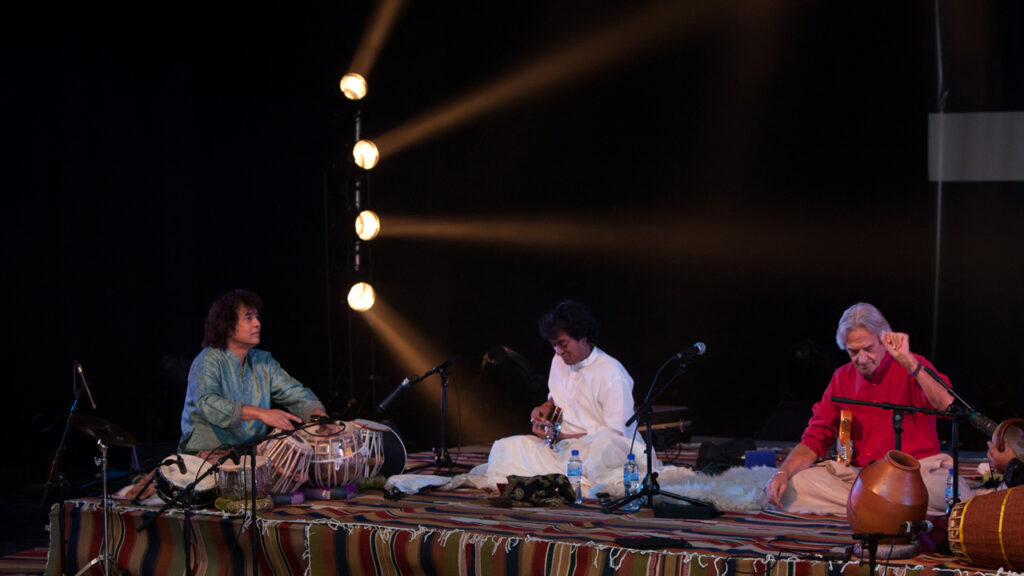
Inspiring the Next Generation
As a mentor and teacher, Zakir Hussain dedicated himself to nurturing young talent. His workshops, masterclasses, and performances inspired countless musicians to explore the rich traditions of Indian classical music. Through his efforts, he ensured that the art of tabla playing would thrive for generations to come.
Cultural Ambassador
Beyond his musical achievements, Zakir Hussain served as a cultural ambassador, representing India at international forums and events. His collaborations with filmmakers, dancers, and visual artists highlighted his belief in the transformative power of the arts.
Enduring Impact
Zakir Hussain’s extensive discography, which includes albums like Making Music and Masters of Percussion, continues to inspire listeners around the world. His recordings serve as a testament to his unparalleled artistry and his enduring contribution to the world of music.
FAQs
- Who was Ustad Zakir Hussain?
Ustad Zakir Hussain was a legendary tabla player, composer, and cultural icon known for his contributions to Indian classical and world music. - What awards did Zakir Hussain receive?
He received the Padma Shri, Padma Bhushan, Padma Vibhushan, four Grammy Awards, and several international honors. - What is Zakir Hussain’s role in fusion music?
He co-founded Shakti and collaborated with artists like Mickey Hart, blending Indian rhythms with global genres to create innovative music. - How did Zakir Hussain impact global audiences?
Through performances at iconic venues and collaborations with international artists, he brought Indian classical music to the world stage. - What is Zakir Hussain’s legacy in music?
His groundbreaking work in rhythm, teaching, and cross-cultural collaborations continues to inspire musicians and audiences worldwide. - What were Zakir Hussain’s notable collaborations?
He worked with legends like Ravi Shankar, John McLaughlin, and Mickey Hart, creating a universal musical language. - How did Zakir Hussain influence young musicians?
Through workshops, masterclasses, and mentorship, he inspired countless tabla players to uphold and innovate Indian percussion traditions.
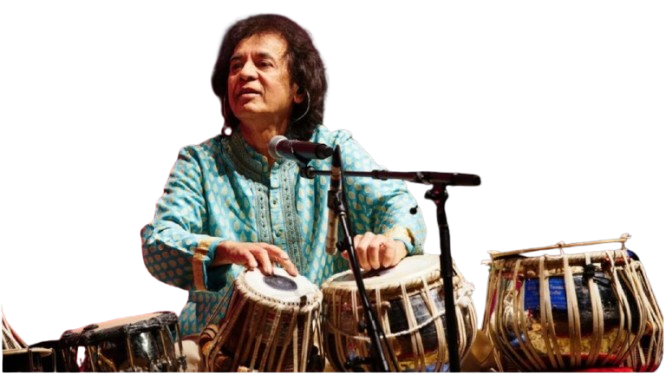
Conclusion
Ustad Zakir Hussain’s extraordinary life was a testament to his passion, creativity, and dedication to music. From his early years under the guidance of Ustad Alla Rakha to his global acclaim as a tabla maestro, he redefined the boundaries of rhythm and melody. His contributions to Indian classical music, fusion genres, and global cultural exchange have left an indelible mark on the world.
As we celebrate his life and legacy, Ustad Zakir Hussain’s music continues to resonate, reminding us of the power of rhythm to unite, inspire, and uplift.

